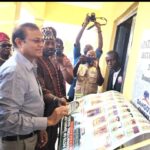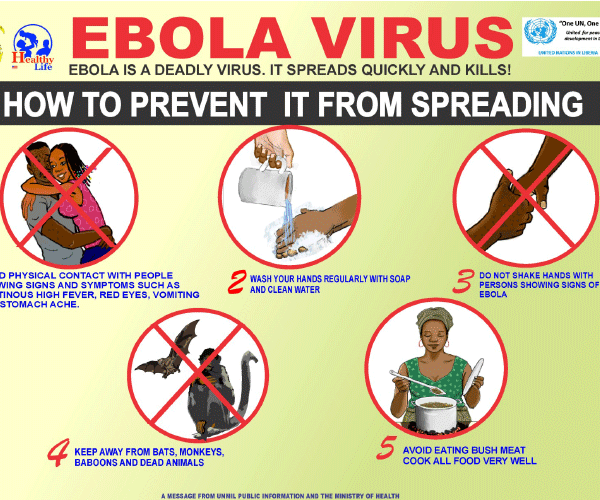Surveillance
By Lilian U. Okoro
Amid reports of a new Ebola outbreak in the Democratic Republic of Congo (DRC) some health experts have called for reactivation and strengthening of the public health surveillance system.
The experts made the call in separate interviews with the News Agency of Nigeria (NAN) on Tuesday in Lagos.
NAN recalls that Nigeria’s only Ebola outbreak occurred in 2014, when the virus was imported from Liberia by a traveler, resulting in 20 cases and eight deaths before successful containment.
The DRC Ministry of Health confirmed 63 suspected Ebola cases and 16 deaths as at Sept. 8 in Kasai Province, including four health workers, identifying the Ebola Zaire strain as the outbreak’s cause.
This was the 16th Ebola outbreak in the DRC since the virus was discovered there in 1976.
The outbreak has spread across Bulape and Mweka health zones and recorded a mortality rate of 57 per cent, raising concerns over the disease’s high fatality and potential for further spread.
A Virologist, Prof. Oyewale Tomori, said that Nigeria should be at high alert; enhancing surveillance at the borders, healthcare facilities and building trust with communities.
Tomori, also the Chairman, Biovaccines Nig Ltd., said that public health facilities should be reactivated to position them for detection and treatment of any identified case.
Tomori, who regretted that the nation’s borders were porous, urged the personnel working at these entry points to scale up their responsibilities to be able to identify suspected travellers.
“Sometimes, after containment of an outbreak, the health facilities and measures may be abandoned; there is need to reactivate these facilities like the laboratory centres and other detective tools to enable easy track down of suspected casas for prompt treatment.
“The workers at the borders should be at a very high alert to inspect mostly travelers coming in from Addis Ababa and Lome; because those are the major connection points from DRC, where the Ebola outbreak has been confirmed.
“Hence, the need for adequate preparedness for infection control, prevent importation and transmission into the country,” Tomori said.
Contributing, an Epidemiologist, Dr Igwe Chukwubike, said that continuous public health education remained critical at this point to educate the populace on how to prevent contraction of the disease.
Chukwubike emphasised the need for frequent hand-washing with soap and water, saying that regular hygiene remained key preventive measure to reduce transmission risk from contact with infected surfaces or individuals.
He also stressed the need to avoid physical contact with anyone showing symptoms such as fever, vomiting, or unexplained bleeding, which were common signs of Ebola infection.
According to him, people should always raise alert and report to relevant agencies and health facilities as soon as they noticed any suspected person or unusual illnesses.
“Increased public sensitisation is paramount to put people in the position to know where and when to report any suspected case.
“Optimum hygiene practices are expected among citizens at this time,” he said.(NAN)(www.nannews.ng)
Edited by Chioma Ugboma
2025-09-16












